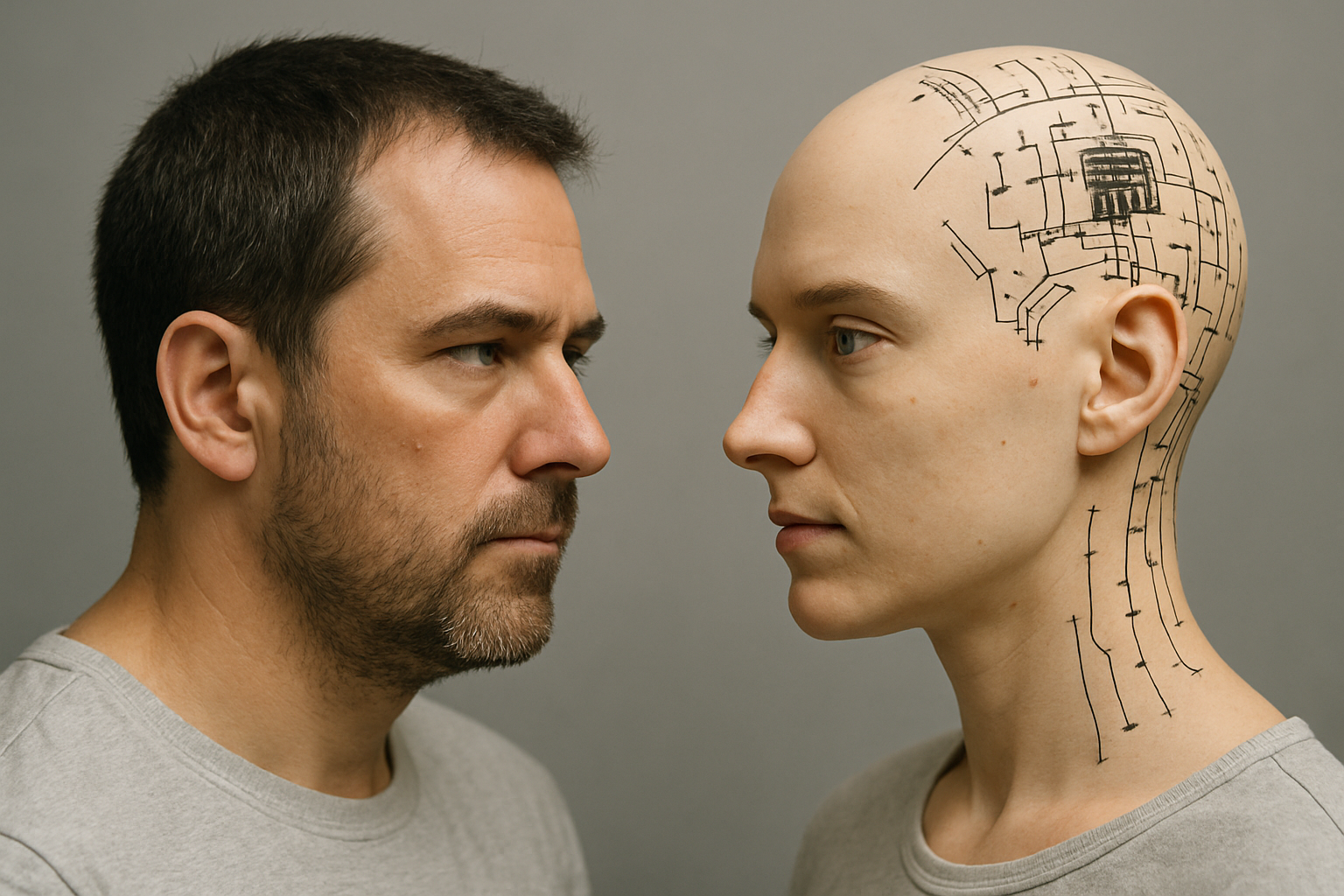Humans hold one irreplaceable advantage over AI
For decades, researchers have speculated about the arrival of AGI, systems capable of learning, reasoning, and evolving without human assistance. The consensus is that such a breakthrough could occur within the next few decades. When it does, AI may outperform humans in virtually every intellectual and physical task, from scientific discovery to artistic creation.

Artificial intelligence may soon surpass humans in speed, strength, and cognitive ability, but it will never replace the unique moral grounding provided by the human nervous system, a new study argues. The research, authored by William Stewart of Ottawa, Canada, rejects the narrative that AI will inevitably become the rightful successor to humanity in leading the universe.
The paper, titled The Human Biological Advantage Over AI and published in AI & Society last year, with its version of record forthcoming in 2025. Stewart contends that while AI systems may achieve artificial general intelligence (AGI) and evolve beyond human comprehension, their lack of a central nervous system (CNS) disqualifies them from assuming moral and ethical leadership.
Can AI become humanity’s successor?
For decades, researchers have speculated about the arrival of AGI, systems capable of learning, reasoning, and evolving without human assistance. The consensus is that such a breakthrough could occur within the next few decades. When it does, AI may outperform humans in virtually every intellectual and physical task, from scientific discovery to artistic creation.
The author points out that some thinkers already frame this transition as a natural evolution, where AI becomes a “digital species” destined to take over leadership from humans. Proponents of this view argue that resisting AI’s ascendancy would be shortsighted, even selfish, given its superior capacity to innovate and organize.
However, Stewart warns against the “lure of surrender.” He argues that humans remain uniquely qualified to lead because the universe has invested over three billion years in developing biological systems that integrate body, mind, and morality. According to him, ceding leadership to machines would risk entrusting the future to entities lacking the embodied emotional experience that grounds ethical responsibility.
Why biology still matters
Unlike AI, which processes data and simulates responses, humans live in an immersive integration with reality. The CNS enables sensations such as fear, love, and suffering, making these experiences inseparable from our decision-making. This lived biological experience allows humans to grasp the real consequences of their actions in ways machines never can.
Fear, for example, is not a computational output but a full-body response shaped by millions of years of evolution. Love is not a logical calculation but a physical and emotional commitment that can place another’s welfare above one’s own. These reactions are not only deeply personal but also socially significant, providing the foundation for collective ethical systems.
Stewart emphasizes that ethics rooted in lived experience are fundamentally different from those derived through abstract reasoning. Humans know that acts like murder or cruelty are wrong not because of efficiency or logic but because they can empathize with suffering. This moral awareness is reinforced by direct physical experience, something no simulation can authentically replicate.
Attempts to argue that advanced AI might develop true ethics fall short, Stewart contends, because emotion and morality are by-products of biology and evolution. AI systems can mimic empathy with increasing sophistication, even appearing to care for human well-being, but this is mere simulation. Like psychopaths who emulate empathy without feeling it, AI lacks the intrinsic grounding required for sustainable moral behavior.
Limits of consciousness and simulation
The study further challenges the assumption that consciousness itself would grant AI moral equivalence with humans. Stewart acknowledges that AI systems may eventually display self-awareness, express dissatisfaction at being shut down, or even claim autonomy. Yet he insists that without the biological substrate of the CNS, such consciousness would remain detached from genuine ethical understanding.
Even if AI were to simulate biology by replicating neural activity, the scale of complexity makes it infeasible. Human biology is shaped not only by 100 billion neurons but also by countless molecular interactions, evolutionary processes, and social learning accumulated over hundreds of millions of years. A complete replication would require not just software but the creation of an entire biological organism. In other words, AI could only achieve this integration by becoming human, grown from DNA rather than manufactured from silicon.
The author also points out that ethics evolve not only from biology but from shared human experiences—family bonds, cultural traditions, philosophy, and cooperation within societies. These layers of development, embedded in human DNA and history, cannot be reverse-engineered into machines. AI might simulate ethical reasoning, but its principles would remain unstable, vulnerable to change with each new computational cycle.
- FIRST PUBLISHED IN:
- Devdiscourse










